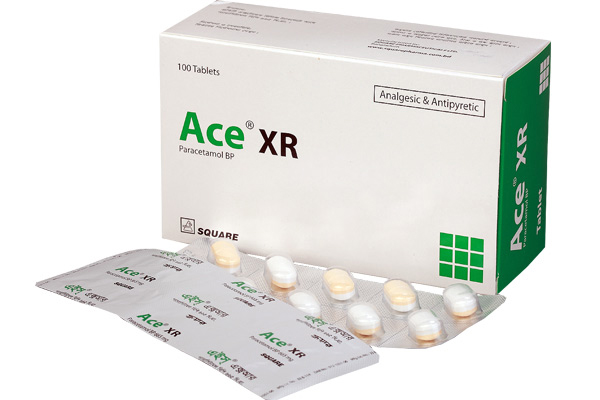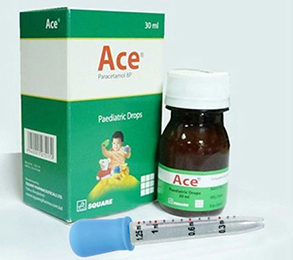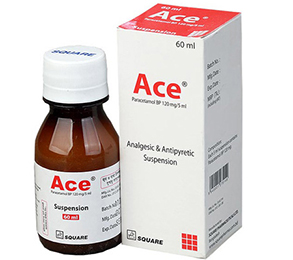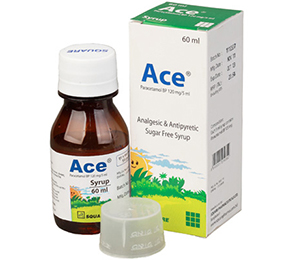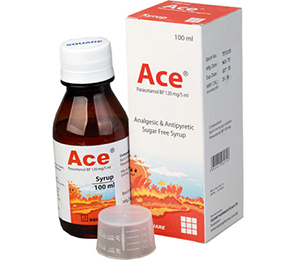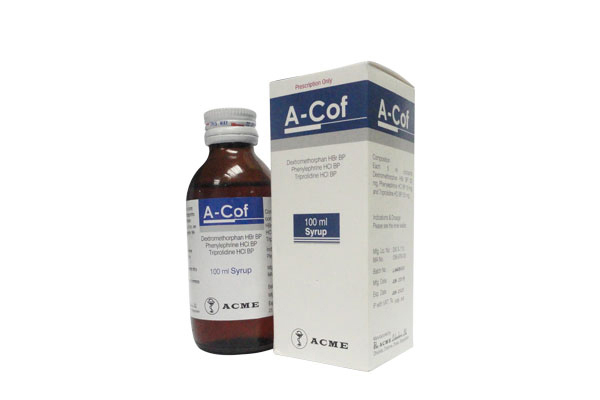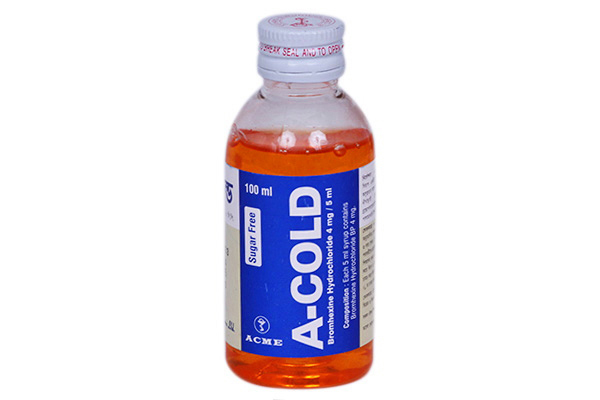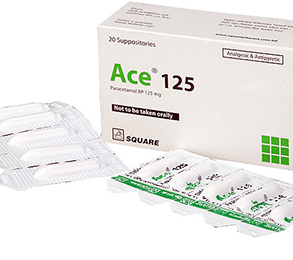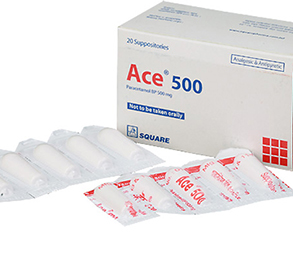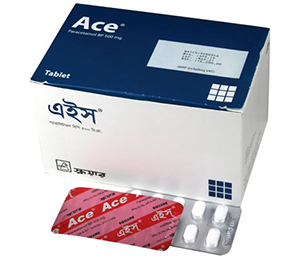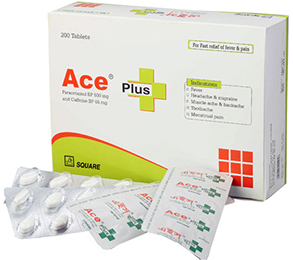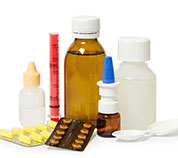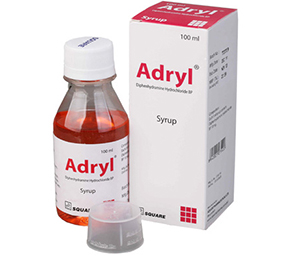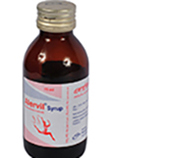Ace-xr 10 Pc
Alternative products
Indications
Paracetamol is indicated in:
- Fever,common cold and influenza.
- Headache,toothache, earache, bodyache, myalgia, dysmenorrhoea, neuralgia and sprains.
- Pain of colic, back pain, post-operative pain, postpartum pain, chronic pain of cancer, inflammatory pain, and post-vaccination pain and fever of children.
- Rheumatism and osteoarthritic pain & stiffness of joints in fingers, hips, knees, wrists, elbows, feet, ankles and top & bottom of the spine.
* চিকিৎসকের পরামর্শ অনুযায়ী ঔষধ সেবন করুন
Therapeutic Class
Non opioid analgesics
Pharmacology
Paracetamol exhibits analgesic action by peripheral blockage of pain impulse generation. It produces antipyresis by inhibiting the hypothalamic heat-regulating centre. Its weak anti-inflammatory activity is related to inhibition of prostaglandin synthesis in the CNS.
Paracetamol (Acetaminophen) is thought to act primarily in the CNS, increasing the pain threshold by inhibiting both isoforms of cyclooxygenase, COX-1, COX-2, and COX-3 enzymes involved in prostaglandin (PG) synthesis. Unlike NSAIDs, acetaminophen does not inhibit cyclooxygenase in peripheral tissues and, thus, has no peripheral anti-inflammatory affects. While aspirin acts as an irreversible inhibitor of COX and directly blocks the enzyme's active site, studies have found that acetaminophen indirectly blocks COX, and that this blockade is ineffective in the presence of peroxides. This might explain why acetaminophen is effective in the central nervous system and in endothelial cells but not in platelets and immune cells which have high levels of peroxides. Studies also report data suggesting that acetaminophen selectively blocks a variant of the COX enzyme that is different from the known variants COX-1 and COX-2. This enzyme is now referred to as COX-3. Its exact mechanism of action is still poorly understood, but future research may provide further insight into how it works. The antipyretic properties of acetaminophen are likely due to direct effects on the heat-regulating centres of the hypothalamus resulting in peripheral vasodilation, sweating and hence heat dissipation.
Dosage & Administration
Tablet:
- Adult: 1-2 tablets every 4 to 6 hours up to a maximum of 4 gm (8 tablets) daily.
- Children (6-12 years): ½ to 1 tablet 3 to 4 times daily. For long term treatment it is wise not to exceed the dose beyond 2.6 gm/day.
Extended Release Tablet:
- Adults & Children over 12 years: Two tablets, swallowed whole, every 6 to 8 hours (maximum of 6 tablets in any 24 hours).The tablet must not be crushed.
Syrup/Suspension:
- Children under 3 months: 10 mg/kg body weight (reduce to 5 mg/kg if jaundiced) 3 to 4 times daily.
- 3 months to below 1 year: ½ to 1 teaspoonful 3 to 4 times daily.
- 1-5 years: 1 -2 teaspoonful 3 to 4 times daily.
- 6-12 years: 2-A teaspoonful 3 to 4 times daily.
- Adults: 4-8 teaspoonful 3 to 4 times daily.
Suppository:
- Children 3-12 months: 60-120 mg,4 times daily.
- Children 1-5 years: 125-250 mg 4 times daily.
- Children 6-12 years: 250-500 mg 4 times daily.
- Adults & children over 12 years: 0.5-1 gm 4 times daily.
Paediatric Drop:
- Children Upto 3 months: 0.5 ml (40 mg)
- 4 to 11 months: 1.0 ml (80 mg)
- 7 to 2 years: 1.5 ml (120 mg). Do not exceed more than 5 dose daily for a maximum of 5 days.
Paracetamol tablet with actizorb technology: It dissolves up to five times faster than standard Paracetamol tablets. It is a fast acting and safe analgesic with marked antipyretic property. It is specially suitable for patients who, for any reason, can not tolerate aspirin or other analgesics.
- Adults and children (aged 12 years and over): Take 1 to 2 Tablets every four to six hours as needed. Do not take more than 8 caplets in 24 hours.
- Children (7 to 11 years): Take ½-1 Tablet every four to six hours as needed. Do not take more than 4 caplets in 24 hours. Not recommended in children under 7 years.
* চিকিৎসকের পরামর্শ অনুযায়ী ঔষধ সেবন করুন
Interaction
May reduce serum levels with anticonvulsants (e.g. phenytoin, barbiturates, carbamazepine). May enhance the anticoagulant effect of warfarin and other coumarins with prolonged use. Accelerated absorption with metoclopramide and domperidone. May increase serum levels with probenecid. May increase serum levels of chloramphenicol. May reduce absorption with colestyramine within 1 hr of admin. May cause severe hypothermia with phenothiazine.
Contraindications
Paracetamol is contraindicated in patients with severe renal function impairment and hepatic disease (Viral Hepatitis). Contraindicated in known sensitivity to Paracetamol
Side Effects
Side effects of paracetamol are usually mild, though haematological reactions including thrombocytopenia, leucopenia, pancytopenia, neutropenia, and agranulocytosis have been reported. Pancreatitis, skin rashes, and other allergic reactions occur occasionally.
Pregnancy & Lactation
Paracetamol is safe in all stage of pregnancy and lactation.
Precautions
Paracetamol should be given with caution to patients with impaired kidney or liver function. Paracetamol should be given with care to patients taking other drugs that affect the liver.
Storage Conditions
Tablet, Syrup & Suspension: Keep in a cool & dry place, protected from light and moisture.
Suppository: Store below 25° C. Keep all medicines out of the reach of children.
- Type Tablet
- Tag
- Morbi leo risus
- Porta ac consectetur ac
- Vestibulum at eros
